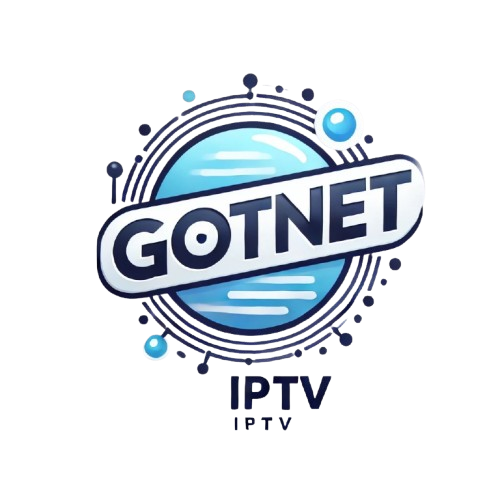GotNET
Understanding IPTV: Essential Internet Speed Requirements Explained
In today’s digital landscape, Internet Protocol Television (IPTV) has emerged as a revolutionary way to consume media, providing viewers with a more flexible and customizable television experience. Unlike traditional broadcasting methods, IPTV delivers television content over the internet, allowing users to stream live TV channels and on-demand videos seamlessly. However, to fully unlock the potential of IPTV, understanding the internet speed requirements is crucial. In this article, we will explore the fundamentals of IPTV, the key factors influencing internet speed for streaming, and the recommended speeds for ensuring optimal performance.
The Fundamentals of IPTV: What You Need to Know
IPTV stands for Internet Protocol Television, a technology that transmits television content through internet protocols rather than traditional terrestrial, satellite, or cable formats. By leveraging high-speed internet connections, IPTV allows users to access a wide variety of channels and on-demand content through devices such as smart TVs, tablets, and smartphones. This method of content delivery not only adds convenience but also enhances the viewing experience with features like pause, rewind, and record live TV.
At its core, IPTV functions by converting television signals into digital packets that are sent over the internet. These packets are then decoded by the user’s device, allowing for a smooth streaming experience. IPTV is typically categorized into three types: live television, time-shifted TV (where viewers can watch content at their convenience), and video-on-demand (VoD), which allows users to select and play media content when they choose. This flexibility has made IPTV a preferred option among modern consumers seeking tailored viewing experiences.
However, while the technology behind IPTV is innovative, its effectiveness heavily relies on the quality of the internet connection. Users might encounter buffering, poor video quality, or interruptions if their internet speed does not meet the necessary requirements for seamless streaming. Therefore, understanding the internet speed capabilities required for IPTV is essential to enjoy uninterrupted access to diverse content offerings.
Key Factors Influencing Internet Speed for IPTV Streaming
Several factors can affect the internet speed required for optimal IPTV streaming. One of the most significant considerations is the resolution of the content being streamed. Higher resolution formats, such as 4K or HD, demand more bandwidth compared to standard definition (SD) content. For instance, streaming HD content typically requires a minimum of 5 Mbps, while 4K streaming might necessitate speeds of 25 Mbps or higher to maintain quality without interruptions.
Another factor influencing internet speed is the number of devices connected to the same network. In households where multiple users are streaming content simultaneously, additional bandwidth is required to maintain performance. For instance, if several family members are streaming videos, playing online games, or conducting video calls at the same time, the overall demand on the internet connection increases, necessitating a higher-speed package to avoid buffering and degraded quality.
Moreover, the type of internet connection itself plays a crucial role in the streaming experience. Fiber-optic connections generally offer faster and more reliable speeds compared to DSL or cable connections. Additionally, the overall health of the network, including the quality of the router and the distance from the device to the router, can impact the effective bandwidth available for streaming. Understanding these factors will help users gauge their internet needs better for a satisfactory IPTV viewing experience.
Recommended Internet Speeds for Optimal IPTV Performance
To ensure an optimal IPTV performance, users should consider the following recommended internet speeds based on the type of content they plan to stream. For standard definition (SD) streaming, a minimum of 3 Mbps is generally sufficient. However, for better quality and a more enjoyable viewing experience, a speed of at least 5 Mbps is recommended. This will help eliminate buffering and ensure a more consistent stream.
For high-definition (HD) content, which has become the standard for most IPTV services, users should aim for at least 10 Mbps. This speed not only accommodates the higher data rates required for HD streaming but also provides some buffer for other household internet activities. If the goal is to enjoy 4K content, which is increasingly popular, a baseline speed of approximately 25 Mbps is advisable. This ensures that users can fully benefit from the enhanced picture quality and detail that 4K offers.
Ultimately, it is important for users to consider their specific usage patterns and the number of devices connected to their network. If multiple users will be streaming content simultaneously or using bandwidth-heavy applications, upgrading to a higher-speed internet plan may be necessary. By assessing personal needs and adjusting internet speed accordingly, users can maximize their IPTV experience and enjoy seamless, high-quality content delivery.
Navigating the world of IPTV requires a solid understanding of the essential internet speed requirements that impact streaming performance. By grasping the fundamentals of IPTV, recognizing the key factors that influence internet speed, and adhering to the recommended speeds for optimal viewing, consumers can significantly enhance their media consumption experience. As technology continues to evolve, keeping pace with these requirements will ensure that viewers can enjoy the vast array of content that IPTV has to offer without interruption, making it a worthwhile investment for modern entertainment needs.
